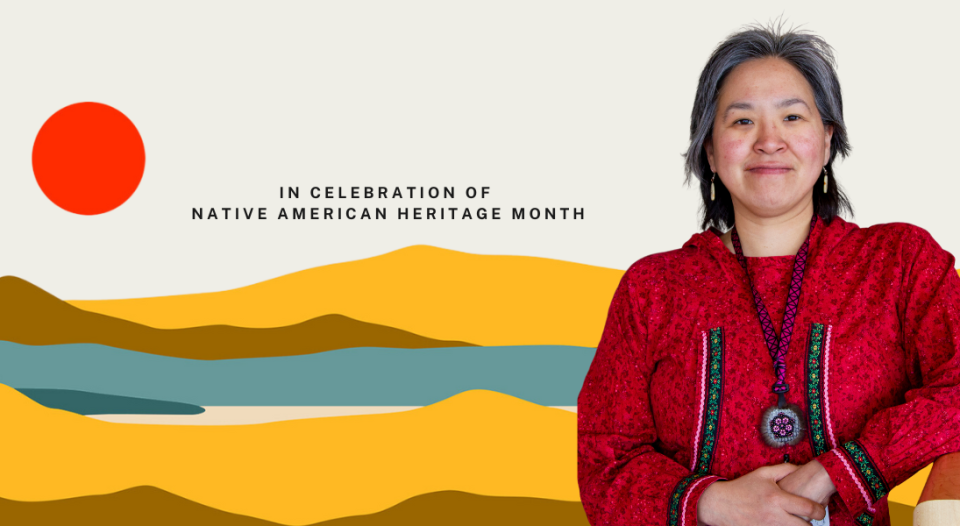I acknowledge the Yup’ik, Inupiaq and St. Lawrence Island Yupik peoples on whose traditional lands I work and live. I also acknowledge the Creator and all Indigenous people of Alaska. Thank you for your past and present stewardship of the waters, plants, animals and spiritual practices of this place. —Shannon Klescewski
For Shannon Klescewski, whose Inupiaq name is Kaliq, Utumanna and Pupiglook, living a life of humble service is evident in the way she speaks about her love of her Lutheran roots, her volunteering to aid those in need in the community and her deep commitment to preserving her cultural heritage.
“My end, long-term goal is … to have a master’s in social work so I could become a clinician in the behavioral health field,” she said. ”My personal goal [is] to help heal our people from generational and historical trauma, and to promote health and wellness through our cultural activities and our values and traditions.”
She began her spiritual journey in childhood, growing up in a Lutheran family, and navigated the rites of passage within her faith. From confirmation to actively participating in the church’s activities, she developed a love for her community that continued into adulthood.
In 2017, Klescewski joined the Alaska Synodical Women’s Organization, which marked the beginning of her engagement at a broader organizational level. Klescewski stepped into leadership roles this past January, serving on both the Synod Council and the Church Council. As she continues to seek ways to engage in and support her local faith community, her commitment has grown beyond her local congregation. She actively participates in a new certification program called Theological Education for Indigenous Leaders (TEIL), designed to equip and empower Native American and Alaskan Native lay leaders.
In Nome, Alaska, where cold weather can prove fatal to those living without shelter, Klescewski is` involved in the Nome Emergency Shelter Team (NEST), an organization that provides shelter and warmth, reaching out to churches for support. Along with other dedicated members of her congregation, she cooks soup to donate toward this humanitarian effort, a simple gesture that leaves a profound impact during the harsh Alaskan winters.
Beyond her congregation’s walls, Klescewski and her family devote time to assisting a three-week immersive annual youth Bible camp from the synod. They work behind the scenes preparing for the campers and lend a hand in shutting down operations.
As she juggles her responsibilities, Klescewski remains rooted in her culture. Her home church, composed predominantly of Inupiaq citizens, is a testament to the rich tapestry of traditions. From singing doxology and choir songs in Inupiaq to incorporating Native dancing into the fabric of Bible camp, she embraces her heritage with pride. Funerals become celebrations of life, with potluck gatherings after memorials and cultural dances in honor of those who have passed, the diverse traditions of each individual shining through. Despite facing challenges, including the COVID-19 pandemic, Klescewski Is committed to serving those around her and making sure her Native Alaskan roots are preserved and celebrated.
Kleschewski also takes pride in her Lutheran past and heavy involvement in her current church, but she has seen how far non-Native Lutherans must go to support and uplift Indigenous people’s voices and stories.
“One of the first steps to work towards justice [is to] help Native American and Alaskan natives tell their truth. Acknowledge the truth to their history. Don’t be offended—respect the history. It’s our truth.”




